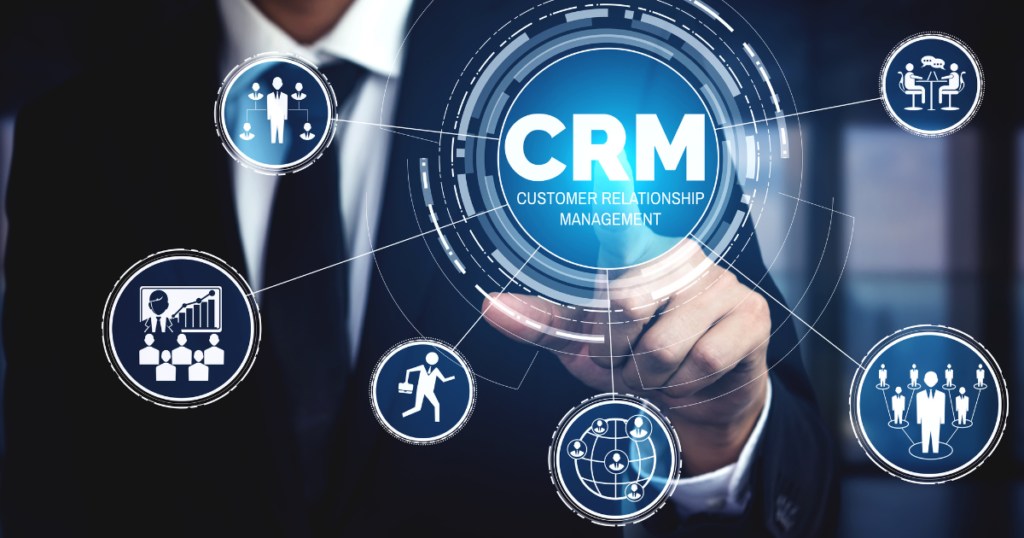What is a point of sale (POS) system?
A point of sale (POS) system is a combination of hardware and software that enables businesses to process customer payments for goods and services. It functions as a central hub where transactions are completed, and inventory is tracked.
POS systems are used in various industries, including retail, hospitality, and healthcare. The system typically includes a touchscreen display, barcode scanner, cash register, and credit card reader.
The primary purpose of a POS system is to make the payment process quick and efficient while maintaining accuracy in inventory management. The software is designed to track sales, manage inventory, and generate reports that can help businesses make informed decisions.
POS systems can also be customized to meet the specific needs of a business. For example, a restaurant may use a POS system that includes features such as table management, menu customization, and order tracking. Overall, a POS system can streamline business operations, improve customer experience, and increase revenue.
How to choose the best POS system for your business
Choosing the best POS system for your business can be a daunting task, given the numerous options available in the market. However, taking into consideration a few factors can help you make an informed decision. Here are some tips to help you choose the best POS system for your business:
1. Identify your business needs:
Before selecting a POS system, you should identify your business needs. Determine the features that are essential for your business, such as inventory management, payment processing, and reporting. This will help you narrow down your options and select a system that meets your specific requirements.
2. Consider ease of use:
The POS system you choose should be easy to use for you and your staff. The software should be user-friendly and intuitive, with a simple interface that allows you to complete transactions quickly and efficiently.
3. Evaluate hardware options:
POS systems come with various hardware options such as tablets, mobile devices, and desktop computers. Consider the hardware options that fit your business setup and select a system that offers the right combination of hardware and software.
4. Look for integration capabilities:
Your POS system should be able to integrate with other systems such as accounting software, payroll software, and customer relationship management (CRM) software. This will help you streamline your business operations and avoid data entry errors.
5. Compare pricing:
POS systems come with different pricing models such as monthly subscriptions or one-time fees. Look for a system that offers competitive pricing and does not have hidden costs.
6. Look for security features:
Security is a crucial aspect of any POS system. You should look for a system that offers features such as encryption, tokenization, and fraud prevention to protect customer data and prevent cyber attacks.
7. Check for customer support:
A good POS system should offer reliable customer support. Look for a vendor that offers 24/7 customer support, online resources, and training to help you and your staff get the most out of the system.
8. Consider scalability:
As your business grows, your POS system should be able to grow with you. Look for a system that can accommodate additional users, locations, and features as your business expands.
9. Read reviews and ratings:
Before selecting a POS system, read reviews and ratings from other users to get an idea of their experience with the system. Look for a system with positive reviews and ratings, and check for any negative feedback to see if there are any common issues.
10. Evaluate customization options:
A good POS system should offer customization options to meet your specific business needs. Look for a system that allows you to customize the interface, reports, and features to match your business requirements.
By considering these additional factors, you can choose a POS system that not only meets your business needs but also offers the necessary security, scalability, and support to help you grow and succeed.
List of 9 best POS systems
1. Square Point of Sale
2. Toast
3. Lightspeed
4. ShopKeep
5. Vend
6. Shopify POS
7. Clover
8. Loyverse POS
9. Revel Systems
What are the best POS systems?
1. Square Point of Sale
In the age of nimble startups and hustling side hustles, a smooth point-of-sale (POS) system is king. Enter Square POS, the ubiquitous, user-friendly darling of the small business world. Square Point of Sale is a powerful tool that allows business owners to accept payments and manage their sales from anywhere. But is it all hype, or can it truly power your dreams of entrepreneurial success? Buckle up, because we’re diving deep into the pros and cons of Square POS in 2024, specifically for businesses on the go.
Pros
- Easy as Pie Setup: Remember dial-up internet and paper manuals? Square throws them out the window. Download the app, plug in your reader, and you’re good to go – literally. Setting up Square takes minutes, even for the tech-averse.
- Pocket-Sized Processing: Whether you’re slinging tacos at a festival or closing deals at a coffee shop, Square’s mobile card reader and app keep you transaction-ready, anywhere, anytime.
- Features for Days: Inventory management, customer profiles, sales reporting – Square packs a punch. You can even sync it with popular accounting software for seamless bookkeeping.
- Affordable Agility: Square’s pay-as-you-go pricing structure is music to bootstrapping ears. No hefty upfront fees, just a simple transaction percentage that scales with your business.
Cons
- Transaction Fees Bite: While convenient, Square’s per-transaction fees can add up for high-volume businesses. Consider alternative providers if you’re processing hundreds of payments daily.
- Limited Customization: Square’s user interface is intuitive, but customization options are slim. For businesses with specific needs, the lack of flexibility might be a dealbreaker.
- Reporting on Autopilot: Square’s built-in analytics are helpful, but power users might crave deeper insights and detailed reports. Consider integrating with third-party analytics tools for advanced data crunching.
- Integrations with Caveats: While Square boasts numerous integrations, some connections can be clunky or limited in functionality. Do your research to ensure your desired integrations meet your needs.
The Verdict:
For small businesses on the go, Square POS is a no-brainer. Its ease of use, mobile flexibility, and affordable pricing make it a perfect fit for entrepreneurs, freelancers, and side hustlers. However, high-volume businesses or those with complex needs might feel constrained by Square’s limitations.
2. Toast
Toast POS is a comprehensive point-of-sale software designed specifically for restaurants. Here are the features, pros, and cons, as well as who it’s best for:
Features:
– Menu management: easily customize your menu, add new items, and make changes on the fly
– Order management: streamline your ordering process with automatic ticket routing, order modifications, and real-time order tracking
– Payment processing: accept a variety of payment methods, split checks, and manage trips
– Reporting and analytics: gain insights into your business with detailed reports on sales, labor costs, and menu performance
– Loyalty program: create a customized loyalty program to keep your customers coming back
– Online ordering: allow customers to order directly from your website or mobile app
Pros:
– User-friendly interface that’s easy to navigate
– Customizable features to fit your restaurant’s specific needs
– Robust reporting and analytics tools to help you make informed business decisions
– 24/7 customer support available
Cons:
– Higher cost compared to some other POS systems
– Limited integrations with third-party apps
– Some users have reported occasional glitches or downtime
Best for:
– Full-service restaurants
– Bars and nightclubs
– Cafes and coffee shops
– Fast-casual restaurants
Overall, Toast POS is a great option for restaurants looking for a comprehensive, customizable POS system with advanced reporting and analytics features. While it may be pricier than some other options, the benefits it offers make it well worth the investment for many businesses.
3. Lightspeed
Lightspeed POS is a cloud-based point-of-sale software that’s designed to help retailers manage their inventory, sales, and customer data. Here are some features, pros, and cons of Lightspeed POS, as well as who it’s best for:
Features:
– Inventory management
– Sales tracking and reporting
– Customizable POS interface
– Customer management
– E-commerce integration
– Mobile app
Pros:
– User-friendly interface
– Advanced inventory management
– Comprehensive sales tracking and reporting
– Wide range of integrations
– Excellent customer support
Cons:
– Steep learning curve for advanced features
– Limited customization options for receipts
– Can be expensive for small businesses
Best for:
– Retail businesses of all sizes
– Businesses with complex inventory needs
– Businesses looking to integrate e-commerce with their physical store
Overall, Lightspeed POS is a reliable and feature-rich solution for retailers looking to streamline their operations and improve their customer experience. While it may be a bit pricey for small businesses, its advanced features and excellent support make it a great choice for larger retailers with complex inventory needs.
4. ShopKeep
ShopKeep POS is a cloud-based point-of-sale system designed for small to medium-sized businesses. It offers a range of features to help streamline operations and improve customer experience. Here are some of the features, pros, and cons of ShopKeep POS:
Features:
– Inventory management
– Employee management
– Reporting and analytics
– Customer management
– Customizable menu and pricing
– Multiple payment options
– Integration with third-party apps
Pros:
– User-friendly interface
– Easy to set up and use
– Excellent customer support
– Robust inventory management features
– Customizable menu and pricing
– Integration with popular payment processors
– Affordable pricing plans
Cons:
– Limited offline functionality
– Limited customization options
– No built-in loyalty program
Best for:
– Small to medium-sized retail stores, cafes, and restaurants
– Businesses with multiple locations
– Businesses looking for an affordable and easy-to-use POS system
Overall, ShopKeep POS is a reliable and affordable option for small to medium-sized businesses that are looking to streamline their operations and improve their customer experience. With its inventory management, employee management, reporting and analytics, and other features, it is a great choice for businesses that want to grow and thrive.
5. Vend
Vend is a popular POS (point of sale) system that has been gaining traction in recent years. Here are some features, pros, and cons of Vend POS:
Features:
– Inventory management
– Customizable reporting
– Customer management
– Loyalty program
– E-commerce integration
– Multi-store support
– Employee management
– Barcode scanning
– Integration with popular payment processors
Pros:
– User-friendly interface
– Easy to set up and use
– Cloud-based, so accessible from anywhere
– Great customer support
– Integrates with a wide range of hardware and software
– Offers a free trial period
Cons:
– Limited features in the lower-priced plans
– Can be expensive for larger businesses
– Limited customization options
– Some users have reported occasional glitches and bugs
Best for:
– Small to medium-sized businesses
– Retail stores with a focus on customer engagement and loyalty programs
– Businesses that need inventory management and reporting features
– Businesses that want a cloud-based POS system
Overall, Vend is a solid choice for small to medium-sized businesses looking for a feature-rich, cloud-based POS system. Its user-friendly interface and integration with popular payment processors make it an attractive option for businesses in retail and other industries. However, larger businesses may find the pricing to be a bit steep, and the limited customization options may not meet their needs.
6. Shopify POS
Shopify POS is a powerful point-of-sale system that enables merchants to sell products in-person and online. Here are some of its features, pros, and cons to help you decide if it’s the right fit for your business:
Features:
– Accepts credit/debit cards, cash, and gift cards
– Manages inventory across multiple locations
– Provides real-time sales analytics and reports
– Allows integration with popular payment gateways and hardware
– Offers customizable receipts and discounts
Pros:
– User-friendly interface and easy to set up
– Seamless integration with Shopify’s online store
– Synchronizes inventory and sales data across all channels
– Allows you to create customer profiles and send personalized marketing campaigns
– Supports multiple payment methods and currencies
Cons:
– Limited hardware options compared to other POS systems
– No offline mode, so a stable internet connection is required
– Advanced features like multi-currency support are only available on higher-priced plans
– Charges processing fees for credit card transactions
Best for:
– Small to medium-sized businesses looking for an all-in-one POS and e-commerce solution
– Retail stores, pop-up shops, and markets that need a portable and flexible POS system
– Businesses that want to track sales data and inventory across various channels
Overall, Shopify POS is an excellent option for businesses that want to streamline their sales process and create a seamless shopping experience for their customers. Its ease of use, real-time data syncing, and integration with Shopify’s online store make it a top choice for merchants.
7. Clover
Clover POS is a popular cloud-based point-of-sale system that offers a range of features and benefits for businesses of all sizes. Below are some of the key features, pros, and cons of the Clover POS system, along with who it’s best suited for.
Features:
– Accepts all major credit and debit cards
– Easy to set up and use
– Customizable interface with a range of apps and add-ons
– Inventory management and tracking
– Sales reporting and analytics
– Employee management and time tracking
– Gift card and loyalty program support
– Contactless payments with NFC technology
Pros:
– User-friendly interface that’s easy to learn and use
– Wide range of integrations and add-ons available
– Excellent customer support and service
– Highly customizable and scalable to fit your business needs
– Secure and reliable payment processing
Cons:
– Can be expensive, especially with add-ons and integrations
– Limited offline mode capabilities
– Some features may require additional fees
– Limited support for international currencies and languages
Best for:
– Small to medium-sized businesses in retail, hospitality, and service industries
– Businesses that require a range of payment options and integrations
– Businesses that value customization and scalability in their POS system
– Businesses that prioritize customer support and service
Overall, the Clover POS system is a great option for businesses looking for a reliable, customizable, and feature-rich point-of-sale solution. Its range of features and integrations make it a popular choice for many businesses, although its cost and limited offline mode capabilities may be limiting factors for some.
8. Loyverse POS
Loyverse POS is a versatile point-of-sale software that is designed for small businesses. Its features include inventory management, sales reporting, customer management, and employee management. The software is free to use, with additional features available for a monthly fee.
Pros:
– Loyverse POS is a free software with a wide range of features that can help small businesses manage their operations efficiently.
– The software is easy to set up and use, with an intuitive interface that allows for quick and easy transactions.
– Loyverse POS can be used on any device with an internet connection, making it highly portable and convenient.
– The software offers integration with various payment processors, making it easy for businesses to accept payments from multiple sources.
– Loyverse POS offers excellent customer support, with a dedicated support team available to help users with any issues or questions.
Cons:
– The free version of Loyverse POS has limited features, with some essential features only available in the paid version.
– The software does not offer offline mode, which means that businesses need to have a stable internet connection to use it.
– Some users have reported occasional glitches or bugs in the software, although these are relatively rare.
Best for:
Loyverse POS is best for small businesses, such as cafes, food trucks, or retail stores, that need reliable and affordable point-of-sale software. Its features are designed to help businesses manage their operations efficiently, and its portability makes it an excellent choice for businesses that operate in multiple locations.
9. Revel Systems
Revel Systems POS is a popular software used for point-of-sale (POS) operations in various industries. Here are some key features, pros and cons, and ideal use cases for Revel Systems:
Features:
– Customizable menu and order management
– Inventory tracking and management
– Integration with third-party payment gateways
– Employee management and scheduling
– Customer relationship management (CRM) tools
– Analytics and Reporting
– Offline mode for continued use during internet outages
Pros:
– User-friendly interface and easy customization options
– Robust inventory management capabilities
– Multi-location support for businesses with multiple stores
– Strong security features
– Excellent customer support
Cons:
– Expensive compared to some other POS software options
– Limited customization options for reporting
– Some users report occasional glitches and bugs
Ideal use cases:
– Restaurants and cafes
– Retail stores
– Quick-service restaurants (QSRs)
– Food trucks and mobile vendors
Overall, Revel Systems POS is a reliable and feature-rich software option for businesses looking to streamline their POS operations. Its strong inventory management and multi-location support make it a particularly good choice for businesses in the food and beverage industry, while its user-friendly interface makes it accessible to businesses of all types. However, its higher price point and occasional glitches may not make it the best fit for all businesses.
conclusion
In conclusion, point-of-sale (POS) systems are crucial tools for businesses of all sizes and industries. They streamline operations, improve customer experience, and provide valuable data and insights that can help businesses make informed decisions. There are many different POS systems available, each with its own set of features, pros, and cons. It’s important for businesses to carefully evaluate their specific needs and goals when selecting a POS system.
When choosing a POS system, businesses should consider factors such as their budget, industry, and specific requirements. Some businesses may prioritize features such as inventory management or customer relationship management, while others may prioritize ease of use or affordability.
Ultimately, the right POS system will depend on a variety of factors unique to each business. However, by carefully evaluating different options and selecting a system that aligns with their needs and goals, businesses can reap the many benefits that a good POS system has to offer.
FAQ
FAQs about POS Systems:
1. What is a POS system?
A POS system is a software application that is used to manage various aspects of a business’s sales, such as inventory tracking, customer data management, and transaction processing.
2. What are the benefits of using a POS system?
POS systems provide many benefits, including streamlined operations, improved inventory management, better customer experience, and valuable data and insights that can help businesses make informed decisions.
3. What types of businesses can benefit from using a POS system?
POS systems are useful for businesses of all sizes and industries, including restaurants, retail stores, quick-service restaurants (QSRs), food trucks, and more.
4. How much does a POS system cost?
The cost of a POS system can vary widely depending on the specific features and capabilities of the software, as well as the size and needs of the business. Some POS systems charge a monthly fee, while others charge a one-time fee or a percentage of each transaction.
5. What should businesses consider when choosing a POS system?
When choosing a POS system, businesses should consider factors such as their budget, industry, and specific requirements. Some businesses may prioritize features such as inventory management or customer relationship management, while others may prioritize ease of use or affordability.
6. Can POS systems integrate with other software applications?
Yes, many POS systems offer integrations with other software applications, such as accounting software, payroll software, and marketing automation tools.
7. How can businesses ensure the security of their POS system?
Businesses should ensure that their POS system has strong security features, such as encryption and tokenization, and that they keep their software up to date with the latest security patches and updates. Additionally, businesses should train their employees on security best practices, such as keeping passwords secure and being vigilant for fraudulent activity.





